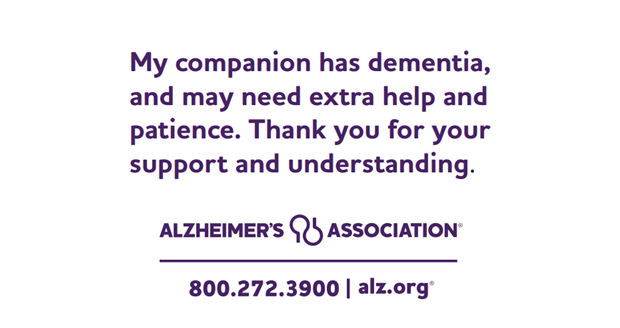Disaster Preparedness for Older Adults & Caregivers
Welcome to First Contact’s Disaster Preparedness Hub
Disasters can be overwhelming, especially for older adults and caregivers. This page provides clear, step-by-step guidance on how to prepare for hurricanes and extreme weather events. The majority of the information below can be useful to anyone in Florida, however if local resources are provided, they will be for Pinellas and Hernando County specifically at the present time.
Our goal is to keep you safe, informed, and ready.
Jump To Section:
Disaster Planning Assistance - EMERGENCY CONTACTS
These resources will help you think about how to create a disaster plan.
When you make a plan, think about your own situation
Know Your Storm Surge, Flood Risk and Home Strength
Know Your Risk
Pinellas Flood & Evacuation Zone:
Hernando Evacuation Zone:
For Flood Zone Information:
*This link contains information on any location in the United States.
🏠 How Strong Is Your Homesite?
💡 Tip: Go here for additional information about flood insurance:
Consider Individual Needs
Mobility Challenges, Medical Conditions & Special Needs:
- If elevators fail in high-rise buildings, stairwells may be inaccessible for months.
- Independent living facilities often lack emergency assistance—know your building’s plan!
- If you require a wheelchair or walker, evacuate early to avoid last-minute glitches.
- If you need refrigerated medication, oxygen, or dialysis, power loss could be life-threatening.
- Register in advance for Special Needs Shelters
Special Considerations For Caregivers and Older Adults:
Preparedness For Caregivers and Older Adults (from First Contact):
Alzheimer’s Association Resources To Help Caregivers Prepare:
Caregiver Stress Management:
💡 Tip: Use companion cards to help shelter staff and others understand dementia-related needs!

To Help you Think Through the Choices
👀 Not sure if you should leave? Follow this decision tree!
1. Do you live in an evacuation or flood zone?
✔️ Yes → You MUST evacuate when an order is issued.
❌ No → Move to the next question.
2. Do you live in a mobile home, RV, or manufactured home?
✔️ Yes → You MUST evacuate - these structures are not safe in hurricane conditions.
❌ No → Move to the next question.
3. Do you live in a high-rise or condo where power loss will affect elevators or water access?
✔️ Yes → You MUST evacuate due to limited emergency access and essential services.
❌ No → Move to the next question.
4. Do you rely on electric medical devices (like oxygen, CPAP, or feeding tubes)?
✔️ Yes → You MUST evacuate to a special needs shelter or stay with someone who can
support your needs.
❌ No → Move to the next question.
5. Do you have limited mobility and require assistance to leave your home?
✔️ Yes → You MUST evacuate early with help or arrange transportation assistance.
❌ No → Move to the next question.
6. Can your home withstand hurricane-force winds?
❌ No → You MUST evacuate to a safer structure.
✔️ Yes → Move to the next question.
7. Do you have reliable support nearby (family, neighbors, or caregivers who can assist)?
❌ No → You MUST evacuate to ensure you have help if conditions worsen.
✔️ Yes → Move to the final question.
8. Do you have enough supplies (food, water, medications, etc.) to last at least 7 days without power or outside help?
❌ No → You MUST evacuate to maintain your health and safety.
✔️ Yes → You MAY be able to shelter in place, if all previous answers also supported it.
💡 Tip: You MUST evacuate if you answered YES to any of questions 1–5 or NO to any of questions 6–8.
💡 Tip: You MAY shelter in place if you answered YES to questions 6–8 and NO to questions 1–5, and you are fully prepared with supplies and support.
💡 Tip: If you’re unsure, it’s always safer to leave! Shelters and evacuation centers exist to protect lives.
If you plan to evacuate
Family & Pet Information:
NOTE: When and where shelters open depend on the location and timing of the emergency. Stay tuned to evacuation alerts as storms approach.
💡 Tip: Evacuation shelters should be your LAST resort! Plan to stay with family or friends FIRST!
💡 Tip: If you evacuate, take a photo of your home before you leave to document potential damage!
IF YOU PLAN TO SHELTER IN PLACE
Home Preparedness Tips For Wherever You Live:
💡 Tip: Expect long-term disruptions after the storm. Condo residents may be without elevators for 6+ months!
📡Stay informed: Emergency Alerts & Recovery
💡 Tip: Keep a battery-powered radio handy for emergency updates if power is lost!
AFTER THE STORM, WHAT'S NEXT?
💡 Tip: Keep all receipts and documentation for FEMA claims!
Call to Action: Prepare Today!
Don’t wait until the disaster is here, prepare early:
- Check Your Evacuation Zone (links above)
- Download Your Disaster Supply Checklist HERE
- Register for Special Needs Assistance (County links above)
- Save Emergency Contacts in Your Phone!
- Talk to Family and Friends about Your Plan!









